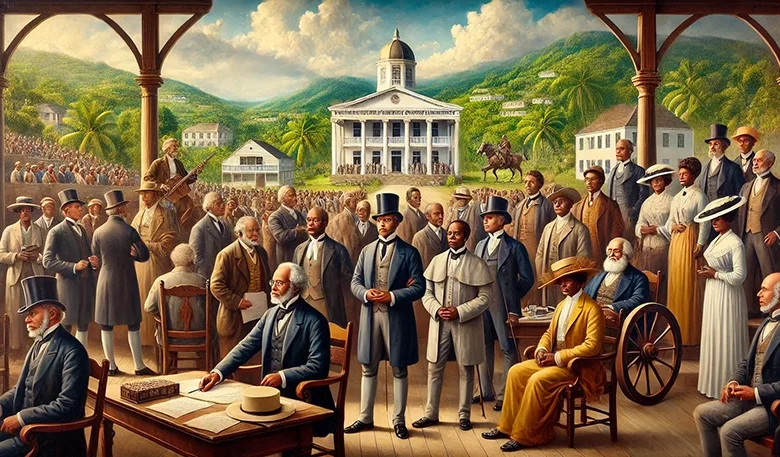Dominica Representative Government Association

The Dominica Representative Government Association was founded by Cecil Edgar Alan Rawle in the early 20th century to advocate for more excellent local governance and autonomy from British colonial rule. At the time, Dominica’s population had little legislative influence, and this association sought to change that by pushing for reforms that allowed for increased representation in government. It was instrumental in laying the groundwork for Dominica’s political evolution and helped establish the foundations of local governance that continue to shape today’s politics.
The 1925 Constitution and Political Advancements
One of the Dominica Representative Government Association’s most notable achievements was implementing a new constitution in 1925, under which Cecil Rawle was elected to represent Roseau in the island’s first elected legislature. The new constitution introduced increased representation for the local population, ensuring that Dominicans’ concerns could be more effectively addressed in the legislative process. This marked a significant step toward local autonomy and governance reform in the colonial era.
Contributions to Voting Rights and Female Suffrage
Another significant milestone achieved by the association was its advocacy for voting rights. At Rawle’s instigation, the Town Board Ordinance of 1902 was amended to allow female householders the right to vote in municipal elections. This significant advancement for women’s rights in Dominica showcased the association’s broader goals of promoting social justice and political reform.
Regional Influence and the West Indies Federation
In addition to advocating for local governance reform, Rawle played a significant role in regional cooperation. In 1932, he chaired the West Indies Conference, which brought together leaders from across the Caribbean to discuss regional unity and political cooperation. This conference laid the groundwork for creating the West Indies Federation, an important attempt at political unification in the Caribbean. Rawle’s leadership in this movement further solidified his legacy as a political pioneer in Dominica and the wider Caribbean.




